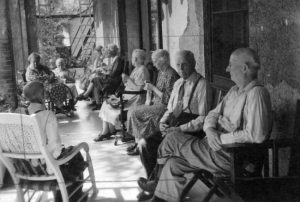Residents of Valley Center with elderly loved ones in nursing homes or assisted-living facilities should pay close attention to a recent case concerning the death of a patient at a Northern California facility. According to an article in the Napa Valley Register, a lawsuit alleges that a 91-year-old patient at the Golden LivingCenter died as a result of nursing home neglect. The lawsuit contends that nursing home negligence led the patient, Jeanne Roney, to “suffer multiple falls and injuries including scabies, a urinary tract infection, and malnutrition.” Nine days after a scabies diagnosis, the patient died.
The patient’s family alleges that the facility failed to provide a sufficient number of staff, and that it also failed to properly train the staff members that it did have. Due to such negligence, the family argues that Roney sustained fatal injuries. How is this claim likely to play out? What is required for a successful nursing home negligence lawsuit in Valley Center, California?
Details of the Recent Allegations Against Golden LivingCenter
 Southern California Nursing Home Abuse Lawyer Blog
Southern California Nursing Home Abuse Lawyer Blog

















